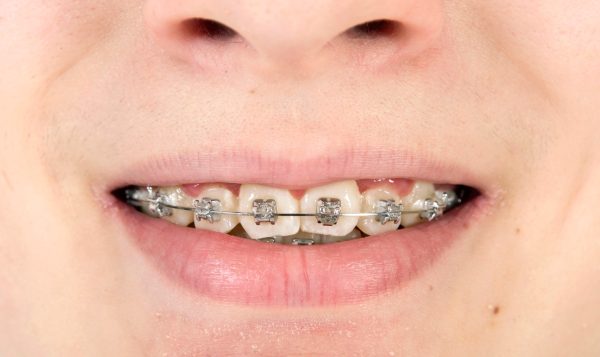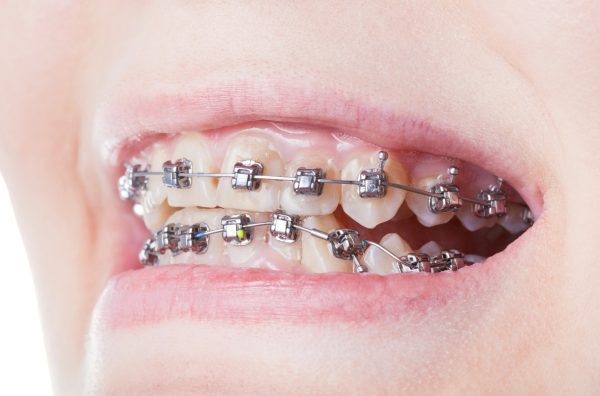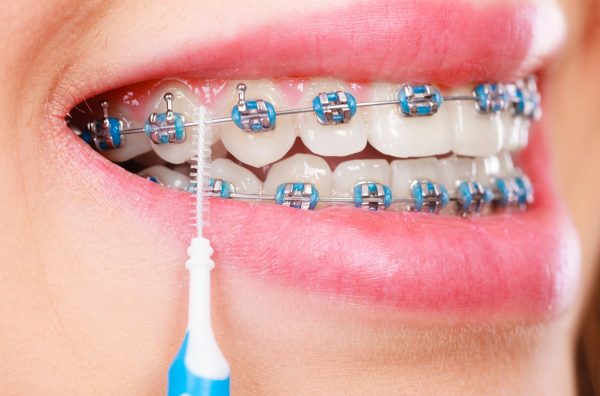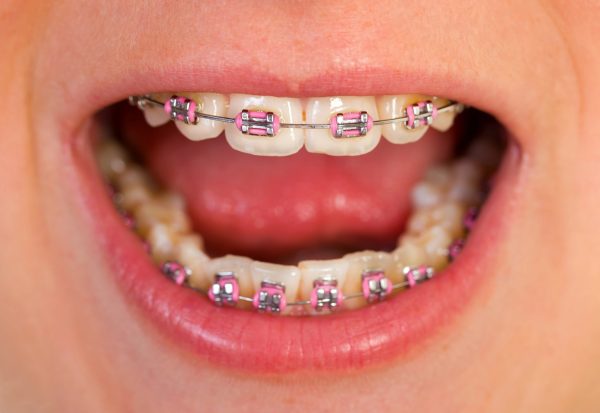Enamel Demineralization and Remineralization During Orthodontic Treatment
Orthodontic treatment, whether through traditional braces or clear aligners, is a life-changing journey that leads to a healthier and more confident smile. At Burke & Redford Orthodontists, where Dr. Ryan Redford and Dr. Michael Burke have been transforming smiles for children and teenagers in the Inland Empire for over 30 years, we understand the importance of oral health during every phase of orthodontic care. While achieving straight teeth is a key goal, it is equally important to focus on protecting the enamel—the protective outer layer of your teeth—during treatment.
Enamel health is critical because it serves as the first line of defense against tooth decay, cavities, and wear. However, the presence of orthodontic appliances such as brackets and wires can pose additional challenges to keeping enamel in optimal condition. In this article, we’ll dive into the concepts of enamel demineralization and remineralization during orthodontic treatment, and how Burke & Redford Orthodontists are committed to helping their patients maintain healthy enamel throughout their orthodontic journey.

Understanding Enamel and Its Role in Oral Health
Enamel is the hardest substance in the human body, designed to protect the inner layers of teeth from decay, temperature changes, and damage from chewing. Even though enamel is incredibly strong, it is not immune to damage, particularly during orthodontic treatment, where it can be harder to keep teeth clean around braces and wires.
At Burke & Redford Orthodontists in Temecula and Lake Elsinore, Dr. Ryan Redford and Dr. Burke prioritize patient education, ensuring that both children and teenagers understand the importance of oral hygiene during treatment. Patients who fail to maintain proper cleaning habits may experience enamel demineralization, which can lead to a range of dental issues.
What is Enamel Demineralization?
Enamel demineralization is the process where minerals like calcium and phosphate are lost from the enamel due to acid attacks. These acids are produced by bacteria in plaque—a sticky film that forms on teeth. When bacteria feed on sugars in the food and drinks that we consume, they release acids that weaken and demineralize enamel.
For orthodontic patients, especially those with braces, the risk of demineralization is higher because plaque tends to accumulate around brackets and wires, making it difficult to clean thoroughly.
This is why Burke & Redford Orthodontists place such a strong emphasis on maintaining excellent oral hygiene during treatment. The first visible sign of demineralization is often the appearance of white spots, known as white spot lesions (WSLs), on the surface of the teeth.

Common factors contributing to enamel demineralization include:
– Poor brushing and flossing habits
– High-sugar diets (especially sugary drinks like soda pop)
– Prolonged exposure to acidic foods and beverages
– Difficulty cleaning around orthodontic appliances
-Not removing Invisalign trays or retainers when eating or drinking
If left untreated, demineralization can progress into cavities and other serious dental issues, impacting both the function and appearance of the teeth.
Preventing Enamel Demineralization During Orthodontic Treatment
Dr. Redford and Dr. Burke know that prevention is the key to maintaining strong enamel throughout your orthodontic treatment. AVOIDING WHITE SPOT LESIONS AND ENAMEL DECALCIFICATION IS COMPLETELY AVOIDABLE WITH GOOD ORAL HYGIENE AND DIETARY HABITS! Dr. Ryan Redford advises patients on the best oral hygiene practices tailored to their specific treatment needs. Here are some essential tips for preventing demineralization:
- Proper Brushing Technique: It’s crucial to brush thoroughly after every meal using an extra soft-bristled toothbrush and fluoride toothpaste. Patients with braces should pay extra attention to cleaning around brackets and wires, angling the toothbrush to reach under and around them. The tooth structure most prone to decalcification is between the bracket and the gumline, so particular care should be taken in these areas.
- Flossing: Flossing is essential to remove plaque between teeth, where a toothbrush is not able to reach. Floss threaders or orthodontic floss can help patients navigate around braces. Water flossers are a helpful adjunctive to physical floss but should not replace it.
- Fluoride Use: Fluoride strengthens enamel by promoting remineralization and preventing demineralization. At Burke & Redford Orthodontists, we often recommend fluoride mouthwash or gel to our patients as an added layer of protection.
- Dietary Adjustments: Limiting sugary and acidic foods and beverages is vital for reducing the risk of enamel damage. Dr. Redford recommends avoiding sodas, sports drinks, fruit juices, and candies which can exacerbate the demineralization process.
- Regular Cleanings: Professional cleanings with your general dental provider are vital for keeping enamel healthy. Our team encourages patients to continue seeing their general dentist every six months for cleanings and check-ups. For patients who struggle with maintaining good oral hygiene, three- or four-month check-ups are a good idea.

What is Enamel Remineralization?
Enamel remineralization is the natural process by which minerals like calcium and phosphate are redeposited into enamel. This process works to restore and fortify enamel that has become compromised by demineralization. The body’s saliva plays a crucial role in this process, as it is rich in minerals that aid in remineralization.
At Burke & Redford Orthodontists, Dr. Redford often explains to patients how fluoride accelerates this process by helping to attract minerals back to the enamel. By encouraging good oral hygiene practices and using fluoride products, patients can prevent further enamel loss and even reverse early signs of damage.
Treatment Options for Enamel Remineralization
For patients showing signs of enamel demineralization, our orthodontists recommend several solutions to encourage remineralization and protect the teeth.
- Topical Fluoride Treatments: Fluoride can help restore enamel by promoting remineralization. Dr. Redford may recommend prescription-strength fluoride gels or varnishes for patients at high risk of demineralization.
- Remineralizing Agents: Products containing calcium phosphate, such as MI Paste, can potentially aid in remineralization. These agents help to replenish lost minerals in enamel and strengthen teeth during orthodontic treatment.
- Antimicrobial Mouthwashes: For patients with high plaque levels, an antimicrobial mouthwash may be prescribed to reduce the bacteria that cause demineralization. This is particularly useful in maintaining a healthy oral environment during treatment.
Advanced Treatment for Severe Demineralization
In cases where enamel damage is more advanced, further treatment may be required. Burke & Redford Orthodontists may suggest more advanced solutions for managing severe demineralization with the patient’s general dentist:
- Microabrasion: For patients with extensive white spot lesions, microabrasion can remove a small layer of enamel to improve the tooth’s appearance.
- ICON Resin Infiltration: This minimally invasive treatment can be used to treat white spot lesions by sealing the enamel and halting further demineralization. It also helps to blend the white spots into the surrounding tooth structure.
- Dental Bonding: In extreme cases where demineralization has caused significant damage, bonding composite fillings or veneers may be recommended after orthodontic treatment is complete to restore the appearance of the teeth.

Long-Term Care and Post-Orthodontic Maintenance
Maintaining enamel health does not stop when braces come off. After orthodontic treatment, patients need to continue practicing excellent oral hygiene and visit their general dentist regularly. At Burke & Redford Orthodontists, we provide patients with tips for long-term care to ensure their teeth remain strong and healthy.
Retainers are a vital part of post-treatment care, and it is essential to keep them clean to avoid plaque buildup. We recommend patients avoid drinking (especially sugary drinks) while wearing their retainers, brush their retainers daily, and use retainer cleaning solutions as needed.
Dr. Redford and Dr. Burke are Committed to Your Long-Term Oral Health
At Burke & Redford Orthodontists, we prioritize not only the alignment of your teeth but also the health of your enamel. Dr. Ryan Redford and Dr. Michael Burke are committed to helping children and teenagers in Temecula, Lake Elsinore, and across the Inland Empire maintain optimal oral health throughout their pediatric orthodontic treatment.
By preventing enamel demineralization and encouraging remineralization, we ensure that patients leave our office with beautiful, healthy smiles that last a lifetime.
Request a Consultation by Calling Burke & Redford Orthodontists today on (951) 699-8011 or fill out the form through our website anytime. Let us help your family achieve healthier smiles for the future.